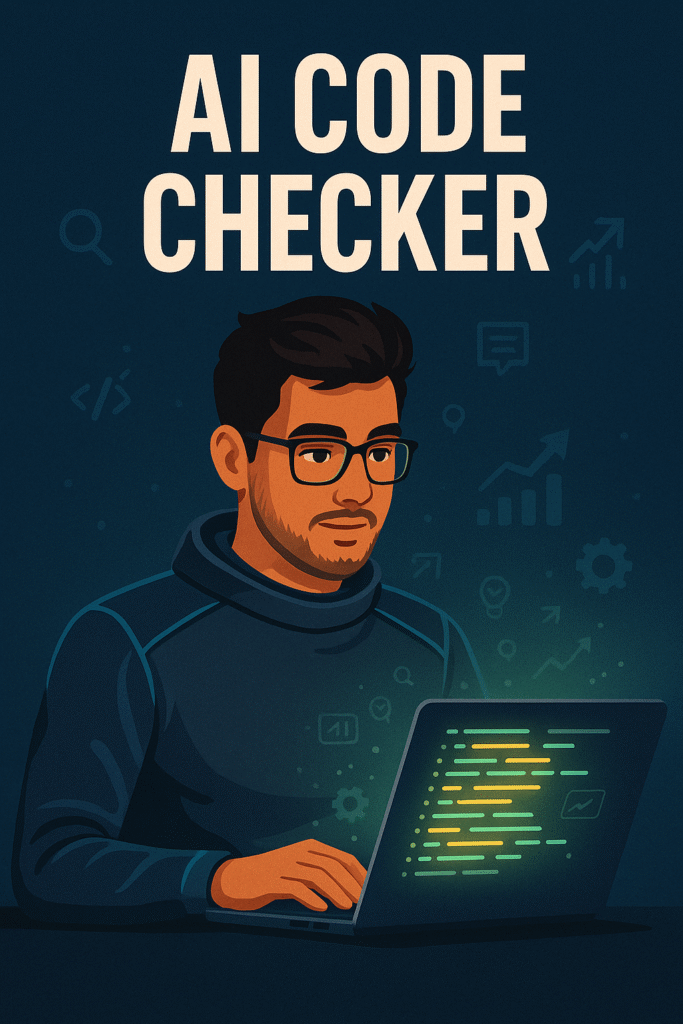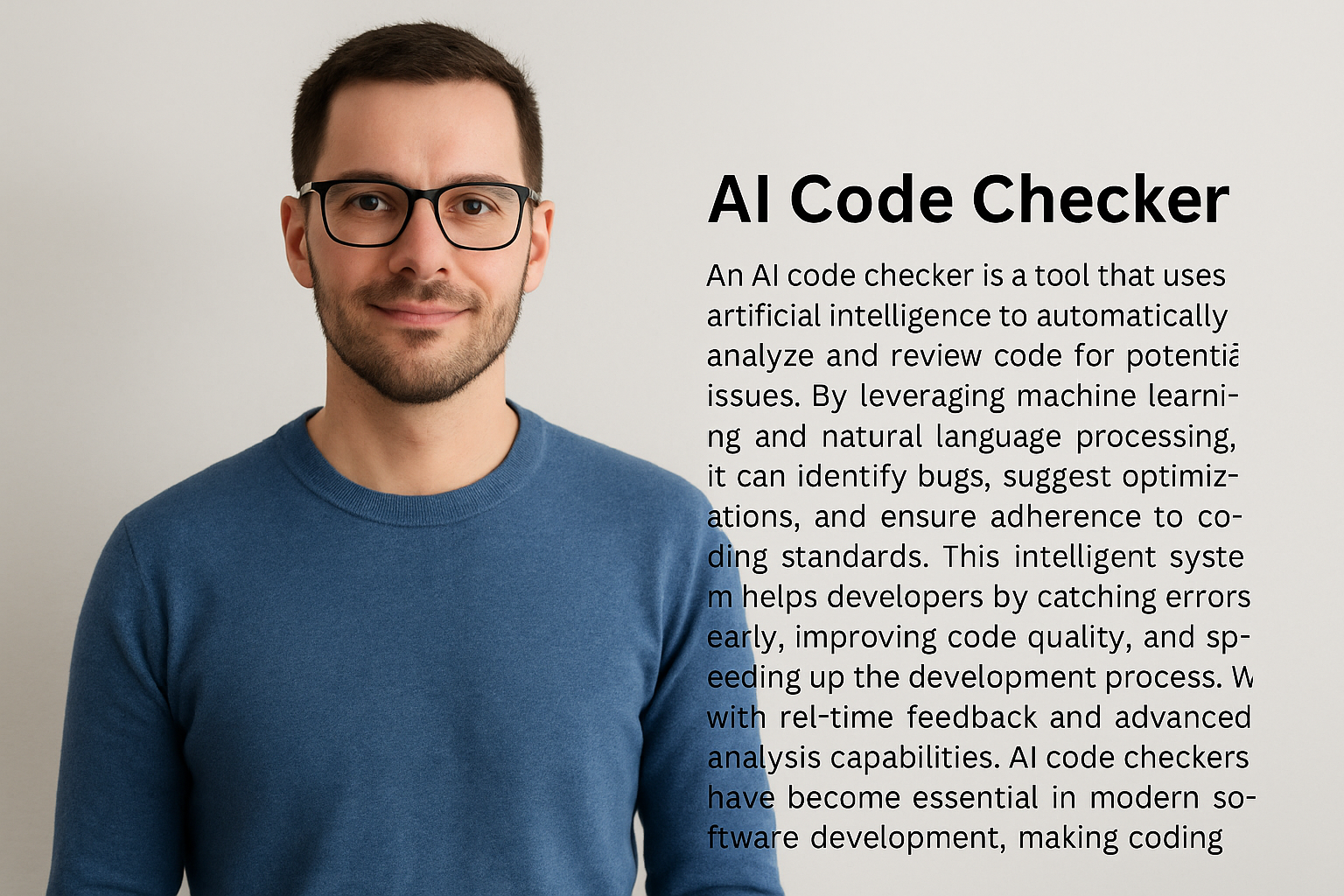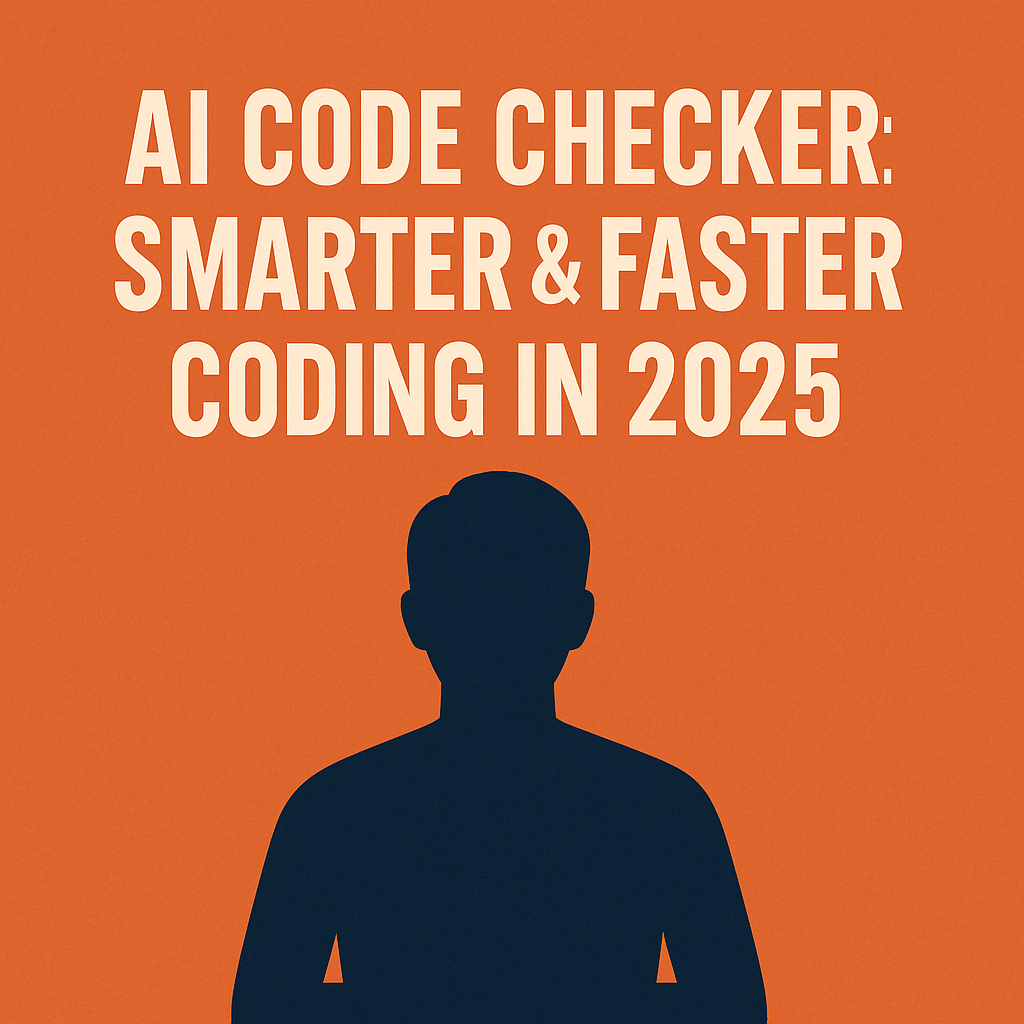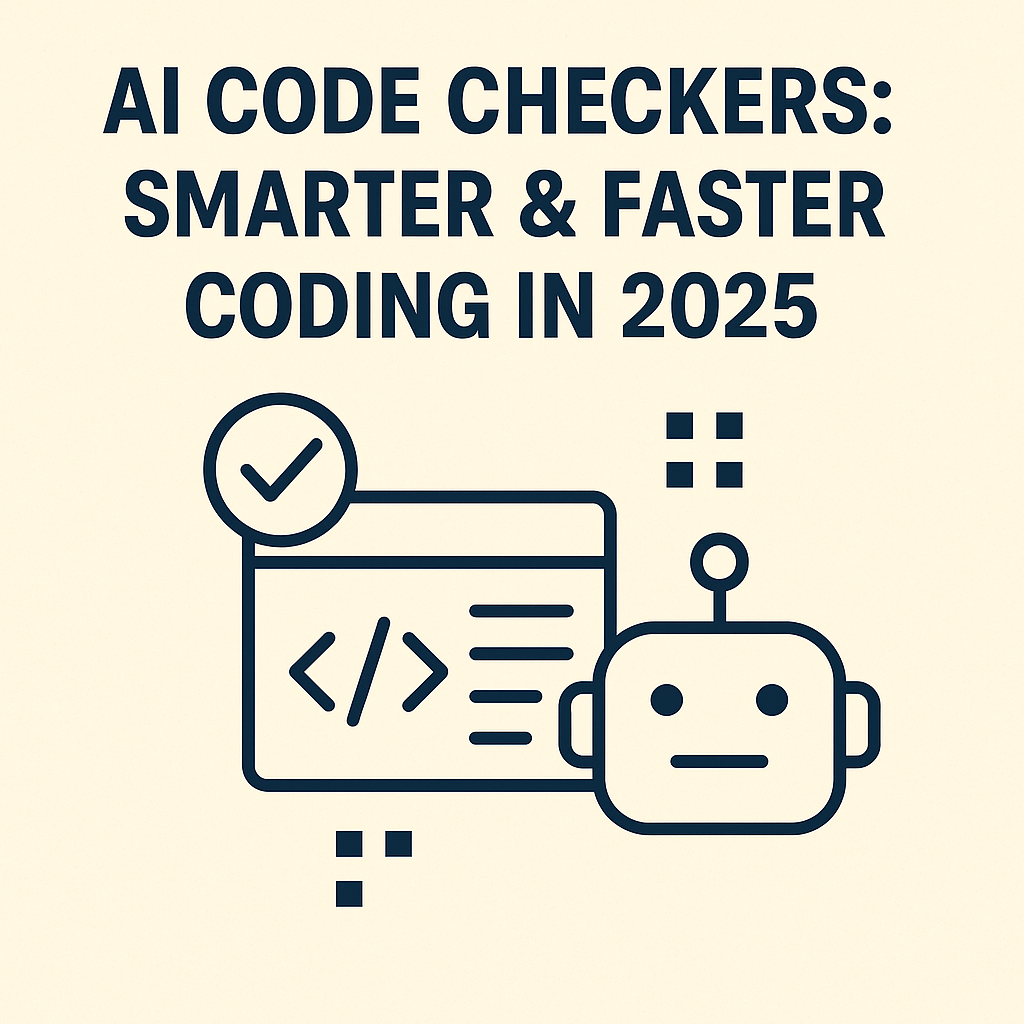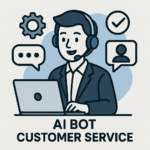Introduction: A New Era in Software Development
In today’s fast-paced tech-driven world, one term is becoming increasingly familiar among developers—AI Code Checker. This groundbreaking tool is reshaping how software development is done by offering real-time code analysis powered by artificial intelligence. From detecting bugs to suggesting improvements, an AI Code Checker does much more than traditional code review tools. Right from the start of a project, it helps developers write cleaner, more efficient code—saving time, reducing errors, and enhancing productivity across the board.
As technology continues to advance, development teams are constantly under pressure to deliver high-quality software at faster speeds. However, writing perfect code is rarely easy, especially when deadlines loom and complexity increases. That’s where an AI Code Checker truly shines. It not only identifies syntax errors and logic flaws but also offers context-aware feedback that makes sense to the developer. This means less time spent debugging and more time building.
Moreover, these intelligent systems go beyond just spotting mistakes. They help enforce coding standards, promote consistency, and guide developers—especially beginners—towards industry best practices. Because of their real-time, smart suggestions, AI Code Checkers are quickly becoming essential tools in modern development environments.
What makes them even more valuable is how seamlessly they integrate into existing workflows. Whether you’re using GitHub, VS Code, or other platforms, an AI Code Checker fits right in and works behind the scenes to make your code better.
All in all, the rise of AI Code Checkers marks a significant shift in the software development landscape. They are not just helpful—they are transformative. If you’re serious about writing high-quality, error-free code, then embracing this new wave of intelligent code review tools is no longer optional—it’s necessary.
Best AI Tools for Social Media Management
What Is an AI Code Checker and How It Works
An AI Code Checker is a smart tool that uses the power of artificial intelligence—mainly machine learning and natural language processing (NLP)—to analyze and evaluate source code. Unlike traditional code checkers that only flag syntax errors, AI-based tools dive deeper into the logic and structure of your code. They can detect complex bugs, suggest improvements, and even highlight potential vulnerabilities that may not be obvious at first glance.
What sets an AI Code Checker apart is its ability to learn from vast amounts of code data. By analyzing millions of code samples, it can recognize patterns, spot common mistakes, and recommend fixes that align with best practices. It doesn’t just tell you what’s wrong—it helps you understand why something might be a problem and how to fix it effectively.
Moreover, these tools work in real-time, meaning they can offer instant suggestions as you write your code. This immediate feedback loop makes development faster, smoother, and much more efficient. Whether you’re working on a small script or a large-scale project, an AI Code Checker can significantly improve code quality, reduce debugging time, and boost overall productivity. In short, it’s like having a smart assistant that never sleeps and always reviews your code with precision.
Why Developers Need an AI Code Checker Tool
Manual Code Reviews: Problems Developers Face
Traditional code reviews are time-consuming, often inconsistent, and require multiple human reviewers. As a result, these limitations can delay product releases and lead to missed bugs.
AI Code Checker Benefits in Solving Review Challenges
Fortunately, AI Code Checkers provide instant feedback, work round-the-clock, and ensure consistent code quality checks without the need for continuous human intervention. This makes them indispensable. Moreover, their speed and precision significantly improve the development cycle.
AI Code Checker vs. Traditional Code Checkers
Limitations of Traditional Code Review Tools
Older static analyzers or linters only catch surface-level issues like syntax errors or style inconsistencies. Consequently, deeper problems may go unnoticed. In addition, these tools often lack context-aware intelligence.
Advantages of Smart AI Code Checker Systems
In contrast, AI-based tools can detect logic errors, performance bottlenecks, and security vulnerabilities that traditional tools may miss. Hence, they provide more comprehensive code analysis. Furthermore, their ability to learn from past reviews gives them a dynamic edge.
How Does an AI Code Checker Work?
Role of Machine Learning in AI Code Checker
AI Code Checkers are trained on vast datasets of good and bad code. Over time, they learn to identify anti-patterns and suggest optimal coding practices. This makes them smarter with use. Additionally, the feedback becomes more accurate as the system matures.
NLP Capabilities in Code Review Automation
Natural Language Processing allows these tools to understand comments, documentation, and variable names. As a result, they provide more context-aware suggestions. Therefore, developers receive help that aligns closely with their intentions.
Predictive Analysis Features of AI Code Checker
By analyzing historical code changes and bug reports, AI Code Checkers can predict potential future errors or maintenance challenges. This adds a proactive layer to development. Consequently, teams can fix issues before they become problems.
Key Benefits of Using an AI Code Checker
Improve Development Speed and Efficiency
Automated code reviews mean faster feedback loops. Consequently, developers spend less time in code review cycles. As a result, projects are completed faster.
Maintain High Code Quality and Standards
AI Code Checkers enforce coding standards uniformly across teams. Therefore, they promote consistency and reduce technical debt. Moreover, it improves readability and team collaboration.
Detect Bugs Early with AI Code Checker
Catching bugs early in the development cycle saves time, reduces costs, and prevents critical failures in production. Thus, it ensures a smoother workflow. Furthermore, early detection contributes to better product quality.
Learn Faster with AI-Powered Coding Assistance
These tools often suggest better coding approaches, acting as mentors especially for junior developers. As a result, they accelerate learning. Consequently, developers grow more confident and efficient.
Strengthen Software Security with AI Code Checking
By scanning for known security vulnerabilities, AI Code Checkers help secure applications before deployment. Therefore, they contribute to safer software. In addition, they reduce risk exposure for organizations.
Top AI Code Checker Tools in 2025
GitHub Copilot – Real-Time AI Code Review Assistant
Powered by OpenAI, GitHub Copilot not only suggests code but also highlights potential issues and offers inline documentation. This makes real-time coding more efficient. Additionally, it supports multiple languages and frameworks.
Tabnine – Adaptive AI Code Completion Tool
Tabnine uses deep learning to provide context-aware code completions and suggestions. As such, it speeds up the development process. Moreover, it seamlessly integrates with popular IDEs.
DeepCode by Snyk – Security-Focused AI Code Checker
This tool excels in finding security vulnerabilities and offers developer-friendly explanations. Therefore, it’s ideal for secure coding. Furthermore, it enhances team accountability by explaining risks clearly.
Codacy – Team-Friendly AI Code Quality Monitor
Codacy provides automatic code review for multiple languages, focusing on quality, complexity, and duplication. Consequently, it is well-suited for team environments. In addition, it simplifies compliance with coding standards.
SonarQube AI – Scalable Code Checker for Enterprises
SonarQube’s AI capabilities help large teams maintain code health across extensive codebases. As a result, enterprises can ensure code integrity at scale. Furthermore, its analytics help guide decision-making.
Where an AI Code Checker Fits in Your Workflow
Real-Time Coding Help with AI Tools
As you type code, these tools offer immediate suggestions, reducing debugging time. Thus, they act as a constant assistant. In turn, this shortens development cycles.
AI-Assisted Code Reviews via GitHub
Many AI Code Checkers integrate directly into GitHub pull requests, enhancing collaboration. Therefore, they streamline review processes. Additionally, this improves code transparency.
Seamless Integration into CI/CD Pipelines
AI tools can be configured to run during build and deployment stages. As a result, only quality code gets shipped. Moreover, it prevents bugs from entering production environments.
Use Cases for AI Code Checker in Different Tech Stacks
AI for Frontend Developers
AI tools can spot unused components, optimize DOM usage, and suggest cleaner UI code. Thus, frontend performance improves. Consequently, users experience smoother interfaces.
AI Code Review for Backend Optimization
They detect inefficient queries, improper error handling, and bottlenecks in backend logic. Consequently, backend systems become more robust. In addition, this boosts system reliability.
Mobile Development with AI Code Checker Tools
From Flutter to Swift, these tools help mobile developers catch memory leaks and performance lags early. Therefore, apps run more smoothly. As a result, user retention increases.
DevOps and Cloud Engineers Using AI Code Analysis
Identify misconfigurations, insecure endpoints, and improve infrastructure-as-code quality. As a result, deployment pipelines become more reliable. Furthermore, this promotes continuous improvement.
Myths About AI Code Checker Tools
Will AI Replace Developers?
No. These tools are assistants—not replacements. Human creativity and problem-solving remain irreplaceable. Therefore, AI complements rather than competes. Additionally, it enhances developer capabilities.
Does AI Force Coding Style on Developers?
Most AI Code Checkers allow customization. As a result, teams can enforce their preferred style guides. Thus, flexibility remains intact.
Are AI Suggestions Always Correct?
Not always. Developers should treat them as recommendations and use discretion. Therefore, human oversight remains important. In other words, AI helps but doesn’t dictate.
Best Practices for Using an AI Code Checker
Customize Code Review Rules and Alerts
Tailor the AI suggestions to your project’s specific standards and requirements. This ensures relevance and effectiveness. Furthermore, it minimizes unnecessary noise.
Combine Human and AI Peer Reviews
Use AI to automate basic checks, freeing up humans for more complex reviews. Consequently, overall review quality improves. In addition, this saves valuable time.
Keep AI Code Tools Updated Regularly
Regular updates ensure the AI learns from the latest coding trends and issues. As such, your tools remain effective. Therefore, update frequency should not be ignored.
Use AI Feedback to Improve Coding Skills
Take note of repeated suggestions—it might highlight areas where you can improve. This turns feedback into growth. Additionally, it contributes to personal development.
AI Code Checker as a Pair Programming Partner
Think of your AI tool as a silent partner who’s always looking over your shoulder—pointing out mistakes, suggesting better code, and speeding up your process. As a result, your productivity sees a noticeable boost. Moreover, you write cleaner code with less stress.
How AI Code Checker Improves Team Productivity
Speed Up the Development Cycle with AI
Fewer bugs, faster reviews, and immediate suggestions mean quicker releases. Therefore, time-to-market is reduced. In addition, it leads to better planning.
Improve Developer Onboarding Through AI Guidance
New hires ramp up faster with AI tools guiding their code writing and reviews. Consequently, onboarding becomes more efficient. Furthermore, confidence grows faster among newcomers.
Ensure Codebase Consistency with AI Support
The AI ensures uniform standards, making the codebase easier to maintain. As a result, long-term project health improves. Moreover, collaboration becomes seamless.
AI Code Checker and Secure Software Development
Detect Vulnerabilities and Insecure Practices
From SQL injections to weak encryption, these tools identify issues early. Therefore, they are vital for secure coding. Consequently, breaches are minimized.
DevSecOps Enhanced by AI Code Checkers
AI brings automated security checks into every stage of development. Consequently, the entire pipeline becomes safer. Moreover, teams can respond faster to threats.
Limitations of AI Code Checker Tools
Why Manual Testing Still Matters
AI can miss context-specific logic errors that only a human might catch. As a result, manual testing remains crucial. Therefore, a hybrid approach is best.
Bias in AI Training Data – What to Watch For
Tools trained on biased or incomplete datasets might provide skewed recommendations. Therefore, awareness is necessary. Furthermore, developers must validate outputs.
Avoid Over-Reliance on AI Code Suggestions
Balance is key—use AI for speed, but verify its output. This ensures accuracy and accountability. In addition, it encourages critical thinking.
Future Trends of AI Code Checkers
Intelligent AI Agents in Development
We may see AI agents capable of writing entire modules or refactoring large codebases autonomously. As a result, development may become even faster. Moreover, productivity will soar.
Autonomous Bug Fixing by AI Tools
Future tools might detect and fix bugs automatically with minimal human intervention. Consequently, maintenance workloads will reduce. Thus, efficiency increases significantly.
Collaborative IDEs Powered by AI
Imagine cloud-based IDEs where multiple developers and AI agents work together in real-time. This could redefine collaboration. Furthermore, it may change how we build software.
Conclusion: Why AI Code Checkers Are Essential in 2025
In 2025, the software development landscape is more competitive and fast-paced than ever before. Companies are under constant pressure to deliver high-quality products quickly, while also maintaining security and reliability. In this environment, an AI Code Checker is no longer just a helpful tool—it has become an essential part of modern development workflows.
Unlike traditional static analysis tools, AI Code Checkers offer real-time, intelligent feedback that goes far beyond catching simple syntax errors. They understand your code’s logic, provide context-aware suggestions, and help enforce coding best practices. As a result, developers can reduce the time spent on manual reviews and focus more on building innovative features.
Moreover, these tools significantly improve collaboration within teams. By providing consistent, automated code review, they help maintain coding standards and reduce friction during development cycles. Whether you’re a freelance developer working solo or part of a large engineering team, using an AI Code Checker ensures your code is cleaner, more secure, and easier to maintain.
Ultimately, adopting AI-powered code review tools in 2025 means staying ahead of the curve. It’s not just about improving productivity—it’s about building better software. Embracing this technology today positions you for long-term success in the rapidly evolving world of development.
FAQs About AI Code Checker Tools
Are AI Code Checkers Free to Use?
Many tools offer free versions or open-source alternatives. Advanced features may require paid plans. So, you have flexible options. Consequently, developers can experiment before committing.
Do They Support All Programming Languages?
Most support popular languages like Python, JavaScript, Java, and more. Therefore, check each tool’s documentation for specifics. In addition, community support may expand capabilities.
Are Human Code Reviews Still Necessary?
Absolutely. While AI speeds things up, the human touch ensures quality, context, and creativity in code. Thus, a balanced approach is best. Furthermore, human insight remains invaluable.

